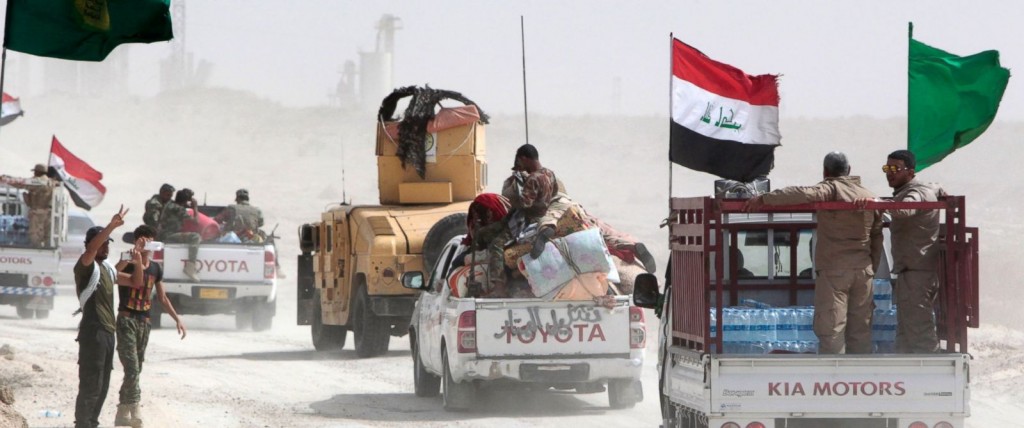
Saba Ararsabah / AFP / Getty images
The official Baghdad on the 22nd of May declared that it launched a large-scale military operation in a rebellious city of Fallujah against Islamic State militants, with the involvement of sophisticated armored vehicles, artillery, and the U.S led air forces. Apparently, the Islamic State has been holding Fallujah since 2014, and therefore the attempt to retake control of the city will be violent and grueling. Fallujah – which is located roughly 69 km west of Baghdad is one of the strategically important cities of Iraq and the first city that has fallen under the rule of the Islamic State.
Seemingly, the military operation is not well organized, since there is an ongoing controversy about the real motives of the Fallujah campaign. Two military divisions of Iraqi government troops, internal troops, and militarised Shiite militants are largely involved in the campaign. The Iraqi armed forces are short of combat-ready soldiers and they are reliant on two brigades of well-trained and experienced counter-terrorist troops numbering about 5,000 men. However, a significant loss of the Iraqi army shows that the military operation has not achieved the main goals, even though the main forces of ISIS flee the city before the operation started and there are only 500-700 ISIS militants. All military success of the Iraqi army over the last year has been dependent on U.S led airstrikes that destroyed most of the ISIS’s positions across Fallujah and Mosul.
The Iraqi Prime Minister Haidar al-Abadi made a huge effort to persuade his U.S counterparts for launching the military operation, who do not consider the re-seizure of Fallujah as a main priority against the Islamic State. Yet the liberation of Fallujah will be the next important step in the defeating process of the Islamic State in Iraq and will be helpful in order to rehabilitate the worsening image of the Abadi government. Notwithstanding the fact that the liberation of Fallujah will not bring a long-awaited peace to Iraq, which has already disintegrated into Sunni, Shiite, and Kurdish military zones. The latest mass riot of people in Baghdad, who stormed the country parliament by protesting the government repeatedly showed the confidence crisis between the government and Iraqi people.
Unlike Syria, the İraqi government is lacking the willingness and self-confidence to confront the Islamic State. According to various military experts, official Baghdad will not be able to re-take control of the strategically important city of Mosul until the next year. Mosul that is under the rule of the Islamic State became one of the biggest platcdarms for radical terrorists. The U.S led coalition member countries, under the pressure of the Gulf monarchies are aimed quickly to advance towards Mosul without the participation of Iranian instructors and Shiite militants.
The so-called Islamic State is showing signs of weakening. It should be noted that many opponents of it are experiencing the same weaknesses as well. The US has been pushing for ground offensives against Mosul and Raqqa, but ground forces in Iraq and Syria may not be capable of taking them this year. The problem of the Shiite government in Baghdad is that it has not a real plan or strategy for what to do next after the defeat of ISIS in Raqqa and Mosul.
Simultaneously the Shiite government in Baghdad has its own catalysts. While the deadly terrorist attacks killed more than 600 people only in March of 2016, the most influential Shiite cleric as – Sadr issued an ultimatum to the Abadi government in order to handle with chaos inside of the country. Otherwise, the cleric threatens Baghdad to renew the mass riot of Shiite Muslims in all big cities against Abadi’s corrupted government. Hence, the schism of Shiite groups in Iraq might become a serious challenge for Iraqi authorities, therefore, the successful liberation of Fallujah will give a breathing-space to the Baghdad regime amid a deep crisis. But the only liberation of Fallujah will not resolve the internal crisis of the Baghdad regime.
